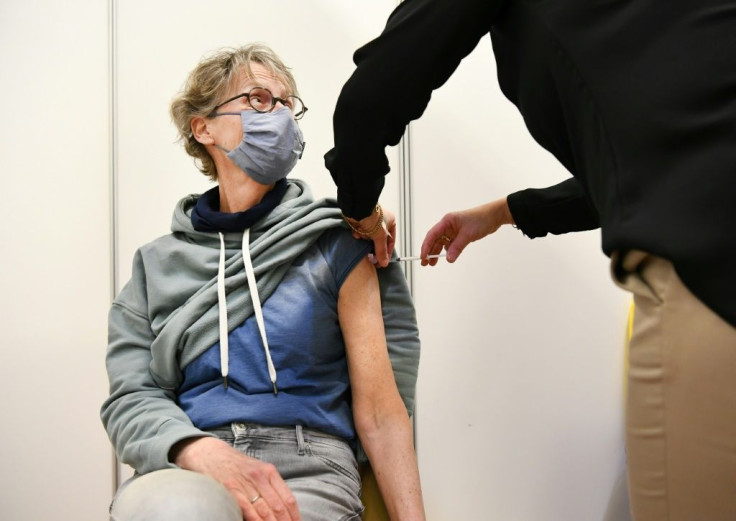Scientists Discover Cause Of Blood Clots From AstraZeneca COVID-19 Vaccine
KEY POINTS
- AstraZeneca vaccine recipients are urged to seek medical care if they experience unusual bruising, swelling or headaches four or more days after receiving the shot.
- Two teams of European researchers have isolated and identified the antibodies that cause the blood clots
- Most who developed the rare condition were women under age 55.
Two teams of scientists in Europe on Friday said they have discovered the cause of rare blood clots among some patients who received a AstraZeneca COVID-19 vaccine dose.
A group of German scientists led by Professor Andreas Greinacher at the University of Greifswald in a statement said they believe the AstraZeneca shot prompts an overactivation of platelets in the blood. This leads to the development of potentially deadly clots.
Greinarcher’s team analyzed 13 cases of cerebral blood clots reported in Germany. The analysis involved 12 women and 1 man who developed blood clots between four and 16 days after inoculation. The researchers were able to isolate and identify the antibodies that caused the overactivation of the platelets.
A team at Oslo University Hospital in Norway investigated three cases of post-vaccination blood clots. All three cases involved health care workers under the age of 50 in Norway. One worker has since died.
Professor Pal Andre Holme told the Norwegian newspaper VG that his team has confidently identified the antibodies responsible for the clots.
"Our theory that this is a strong immune response that most likely comes after the vaccine," he said, echoing the findings made by the German team. "There is no other thing than the vaccine that can explain this immune response."
The researchers said the blood clots can easily be treated and warned AstraZeneca vaccine recipients to seek medical care if they experience unusual bruising, swelling or headaches four or more days after receiving the COVID-19 vaccine shot.
Earlier this month, roughly 30 people developed cerebral venous sinus thrombosis or CVST after receiving a shot of the AstraZeneca vaccine, with some cases becoming fatal. CVST is a rare form of stroke that happens when a blood clot forms in the brain’s venous sinuses, preventing blood from draining out of the brain. Blood cells could then break and blood could leak into brain tissue, leading to a hemorrhage. It affects five people per million every year.
Most of the people who developed the rare condition were women under the age of 55. This prompted more than a dozen counties in the European Union to suspend administering the AstraZeneca vaccine.
Most countries, including Germany, France and Italy, resumed vaccinations with AstraZeneca’s shot Friday after the European Medicines Agency declared that it was safe and effective.

© Copyright IBTimes 2024. All rights reserved.






















